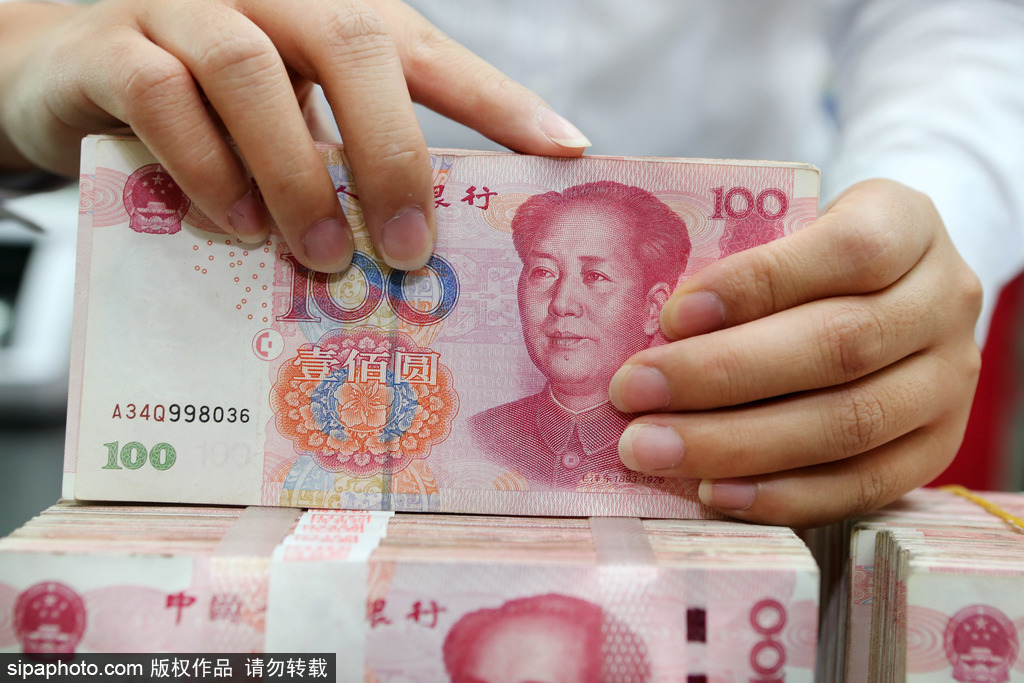Effects of Fed's taper move to be limited


Normalized monetary policy helps nation to maintain independence, said top expert
China is able to not only maintain monetary policy independence but also provide a "safe haven" for global investors amid the US Federal Reserve's move to taper asset purchases, a senior economist and former expert with the People's Bank of China said.
The world's second-largest economy has gradually normalized its monetary policy since May last year from the COVID-19 emergency, making it unnecessary to follow the Fed's steps of policy normalization, said Yao Yudong, chief economist and vice-general manager of the Dacheng Fund, a mutual fund manager based in Shenzhen, Guangdong province.
The country's relatively effective control of COVID-19 and overall stability of industrial chains will continue to prop its export growth, which will in turn help the renminbi hold its own, said Yao, who is also former head of the financial research institute of the PBOC, the Chinese central bank.
Yao's remarks came as the Fed announced on Wednesday it will begin tapering asset purchases this month, while keeping key interest rates unchanged. Market experts said the Fed may raise interest rates next year, which may further strengthen the greenback and weaken emerging market (EM) currencies.
"China does not face the problem as some emerging economies do that the Fed's expected tapering has imposed depreciation pressure on their currencies and necessitated interest rate hikes to prevent potential capital outflow and currency depreciation," Yao said.
A trend has even emerged of the renminbi appreciating against several EM currencies and the US dollar, Yao told China Daily on the sideline of the recent Global Wealth Management Forum in Beijing.
The PBOC is therefore able to maintain its own policy stance, with a focus on lending more aid to the real economy, stabilizing employment and supporting smaller businesses, especially those with specialized and strong innovative capabilities, he said.
Given concerns of currency depreciation and rising inflation, more central banks from emerging economies like Russia, Peru and Brazil have raised interest rates this year.
"The turning point in global liquidity condition has arrived, which may cause challenges to many EMs," Yao said.
With potential market fluctuations due to tightening liquidity, renminbi-denominated assets will likely become a kind of "safe haven" for global investors, he said, thanks to the currency's strength, relatively high asset returns in China, the country's solid economic fundamentals and continuous financial opening-up.
Yao's views found an echo in a recent survey commissioned by Invesco, a global asset manager. The survey found that 64 percent of asset manager respondents across the globe expect to increase their exposure to Chinese financial assets in the coming 12 months, attracted by the country's economic strength and rapidly developing financial markets.
The renminbi has strengthened this year with more foreign money purchasing Chinese financial assets. The central parity of the onshore renminbi against the greenback has appreciated to 6.3943 as of Thursday from 6.5249 at the end of last year, official data showed.
Meanwhile, the CFETS yuan exchange rate composite index, which measures the renminbi's strength relative to a basket of currencies, came in at 100.22 on Oct 29, up 5.38 points since the beginning of the year, according to the China Foreign Exchange Trade System.
In regard to capital inflow, a net of 324.7 billion yuan ($50.8 billion) has flowed into China's A shares via northbound trading under the stock connect programs between the mainland and Hong Kong bourses during the January-October period, versus 208.9 billion yuan in the whole of 2020, said data from market tracker Wind Info.
"The Chinese economy has become more resilient over the past decade. There has begun to emerge a trend that the Chinese economy is treated separately from other EMs," Yao said.
Going forward, China's economy will remain on track for high-quality development with rapid growth in high-tech and clean energy investments, a gradual recovery in consumption, resilient export growth, and a healthier property sector, Yao said.
He added that Chinese small businesses need more policy supports amid high energy prices, and enterprises themselves must also actively fit into the transition of the energy structure by adopting new technologies.



































